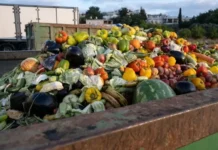
According to the PlastIndia Foundation‘s president Jigish Doshi, “the Plastic Industry, wholeheartedly supports the vision of the Prime Minister for improving the environment-related issues in the country and stands with him in rebuilding India through his various initiatives.”
“However, one of the major problems being faced by the plastic industry is the proposal to ban the single-use of plastic in India. As is well known, the plastic industry is one of the big sectors in India, which is labor-intensive and involves huge capital expenditure (CAPEX) in terms of plant and machinery, and employment opportunities and contributes significantly to the nation’s exchequer. This sector comprises a majority of MSMEs, which involves thousands of business units as well as the employees and their families are heavily dependent on it for their livelihood. The ban on single-use plastics, particularly for those business units, which manufactures single/standalone product, will face adverse impact both on the business as well as the livelihood of the people.”
“The overall view of the plastic industry, in general, is that these business units manufacturing single/standalone product which falls under the banned category will face an unprecedented situation in terms of economic and fiscal issues. Hence, these manufacturers need to be protected by the government by extending support in policies and fiscal incentives. One of the policy guidelines is possibly extending some more time to the manufacturing units to enable them to comply with the order, complemented with financial support from the government across the country.”
“Also, the industry and society will need viable alternatives to single-use plastics products. While for plastic carry bags, it is only a matter of increasing the thickness to 120 microns, finding options for plastic plates and cutleries will be a challenge unless the thickness of these items is increased to make them reusable/ recyclable. The plastics industry is already working towards finding alternatives for thermocol (Polystyrene) based products. To achieve the desired objective, we will need to invest significantly in research and development and innovative technology to develop alternative products, which will take some time. The plastics industry is already working in this direction.”
“Moreover, 99% of plastics are recyclable. Therefore, the need of the hour is a waste management solution and recycling technology that ensures proper collection and recycling of plastic waste. The ragpickers who play a key role in this process should also be given proper incentives. The problem is that the ragpickers don’t have the technology or are not incentivized enough to collect small plastic waste like straws.”
“It is important to remember that India is a huge country with each region’s unique challenges, and the same solution may not apply to all. We need localized solutions to ensure that plastic waste is collected and recycled.”
“While we support the government, imposing a ban on single-use plastics is not the only solution. The government, the industry, and the general public need to work together to find alternatives. Waste management solutions and recycling technologies need to be put in place. Only then can we combat pollution and protect the environment.”
IndiFoodBev — authentic, impactful and influential
An English-language food and beverage processing and packaging industry B2B platform in print and web, IndiFoodBev is in its third year of publication. It is said that the Indian food and beverage industries represent approximately US$ 900 billion in revenues which implies more than 20% of the country’s GDP. Eliminating the wastage on the farmside can help to deliver more protein to a higher number of the population apart from generating sizable exports. The savings in soil, seeds, water, fertilizer, energy and ultimately food and nutrition could be the most immense contribution that country is poised to make to the moderation of climate change.
To improve your marketing and grow sales to the food and beverage processing and packaging industry, talk to us. Our research and consulting company IppStar [www.ippstar.org] can assess your potential and addressable markets in light of the competition. We can discuss marketing, communication, and sales strategies for market entry and growth.
Suppliers and service providers with a strategy and budget for targeted marketing can discuss using our hybrid print, web, video, and social media channels to create brand recognition linked to market relevance. Our technical writers are ready to meet you and your customers for content.
The second largest producer of fruit and vegetables in the world is continuously expanding processing capacities and delivery systems with appropriate innovative technologies. We cover product and consumer trends, nutrition, processing, research, equipment and packaging from farm to thali. Get our 2025 media kit and recalibrate your role in this dynamic market. Enhance your visibility and relevance to existing markets and turn potential customers into conversations. Ask for a sample copy of our bi-monthly in print or our weekly IndiFoodBev eZine each Wednesday.
For editorial info@ippgroup.in — for advertisement ads1@ippgroup.in and for subscriptions subscription@ippgroup.in
Naresh Khanna – 10 February 2025
Subscribe Now











